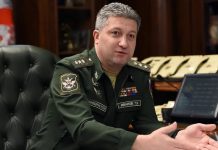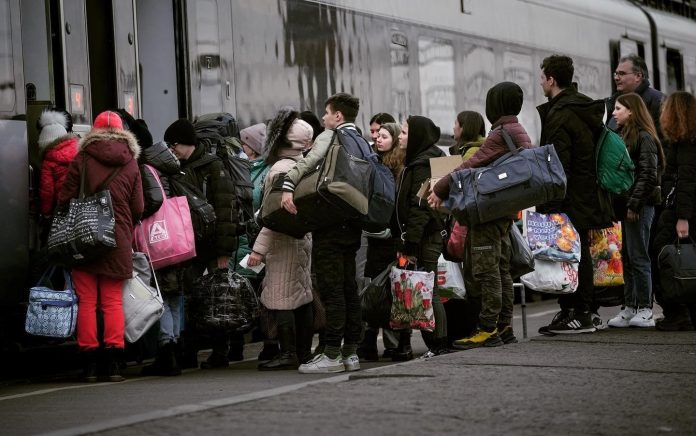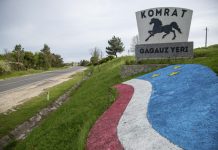We are delighted to welcome Michelle Kelso as guest writer for Universul.net. Here she writes about her recent experiences with Ukrainian refugees and recalls her visits as a scholar to Ukraine for Holocaust research. She also has words of praise for Romania’s response to the unprovoked war in neighboring Ukraine.
‘In mid-March I waited with my husband Alex at the Bucharest train station to meet Lesya and her two girls arriving from the Ukrainian border. A college friend saw on social media that I was in Romania on a humanitarian aid trip. She shared her friend Lesya’s plight, wondering if Romania, one of the European Union’s poorest countries, was a good safe haven. I swiftly replied: Yes! Tell Lesya to come and stay in our apartment.
Humanitarian crisis
The UN calls the exodus of five and half million Ukrainians after Russia’s unprovoked attack on their country a massive humanitarian crisis. Six million Ukrainians remain internally displaced, with little aid reaching them. With violence widespread, refugees continue fleeing.
Nearly 700,000 Ukrainians have crossed into neighboring Romania, the second-largest receiving country. Individuals have opened hearts to Ukrainians, organizing housing, meals, clothing, toys, and school. This week, the government pledged millions of Euros in humanitarian and economic aid.
When war erupted, I felt helpless sitting in my Washington apartment. People I knew were under attack. In 2018, my work as a Holocaust scholar took me to Odessa and surrounding areas. When the Nazis and their Romanian allies occupied Soviet Ukraine from 1941-1944, they turned its black earth into killing fields, murdering over 350,000 Jews and thousands of Roma. Colleagues and I traveled there to research in archives, visiting remembrance sites.
Jewish prisoners
Ukrainians welcomed us with kindness and generosity. We traipsed through remote villages with locals guiding us to unmarked mass graves and those with memories of the camps. One woman remembered her mother hiding her in a wardrobe as Jewish prisoners were marched toward an execution site. Another recalled after liberation she and her siblings ventured a few kilometers to a nearby camp, the misery of it imprinted. After our interview, she prepared boiled potatoes that we washed down with homemade honey vodka, calling herself my Ukrainian “grandmother.” Archivists extended reading room hours for us, handing over folders containing tissue-thin papers.
Russian aggression
As Russian aggression increased, news worsened. A friend, away when war broke out, messaged me that his wife and son were trapped in besieged Kherson. A colleague texted me for assistance getting out with her two young children. Our guide emailed with ways to help.
Needing to do something, I flew to Bucharest. Already there for work, Alex converted his office into a temporary home for two families. In three family apartments, he placed Ukrainians arriving in varying states of shock. My 78-year-old mother-in-law washed and ironed sheets for them, telling me: “I always feel for refugees. But they seem too far away. Ukrainians are our neighbors. We can help them.”
Humanitarian corridor
Days later, a humanitarian corridor opened for the Sumy region. Lesya and the girls had a 30-minute window to cram their backpacks and flee. Lesya agonized over leaving her epileptic husband, prohibited from exiting with them, but he stood firm: the children’s safety came first.
They tearfully boarded a bus, leaving behind family, shelling and hunger. We instructed Lesya on the best route to Bucharest.
The evening was bitingly cold. Ukrainians who arrived on earlier trains sat in the makeshift welcome center, looking dazed. Volunteers readied food and translators tried resolving refugees’ most critical need – places to sleep.
Teddy bear
On the platform Alex held a cardboard sign “Lesya & Children.” They spotted us. We hugged tightly, this woman and I who didn’t know each other. Her youngest clutched a teddy bear gifted at the border. They felt like family.
In the apartment, Lesya showed grocery store photos with only lemons for sale. “Food
shortages,” she explained. In shy English, the girls asked for orange juice. I notified our
93-year-old neighbor about our guests. “We were bombed in ’44 at the war’s end. We hid in cellars,” she said. “But that was child’s play compared to what these people suffer.”
I shared Lesya’s journey on social media, also posting about a supply-short hospital in Odessa. Friends and their friends donated. Within 36 hours, we drove to the border in Isaccea. Firefighters helped load cartons of IVs, insulin, medicines, surgical soaps and more into a van taking supplies into Ukraine.
Carnage
I cannot help but compare my Romanian spouse’s country to my own. Americans are generous-hearted, like Romanians. In both countries, politicians talk. However, I believe Romanians leaders are committed to stopping Putin’s war in ways that their American counterparts are not. Romania understands suffering wrought by past oppression at the hands of the Soviet Union’s successor state legatee, Russia. Our administration produces fiery rhetoric. Meanwhile, the carnage continues.
Refugees
Although I am back in D.C., Alex’s border trips continue. Lesya’s family waits for visas to the United Kingdom. Like most refugees, they want to go home. However, without an embargo on Russian energy, security treaties with Ukraine, and committed peace partners, their home remains a dream.
Michelle Kelso is an assistant professor of sociology and international affairs and the director of the Human Services and Social Justice program at The George Washington University.
Romanian monks welcome Ukraine refugees to 15th-century monastery



















